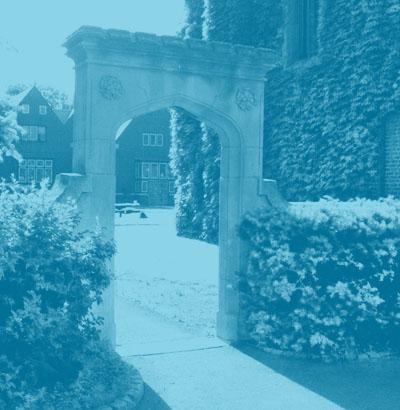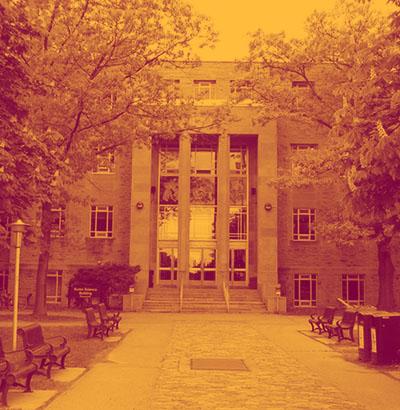Expandable List
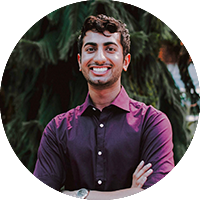 Graduated From The Honours Life Sciences (B.Sc. Hon) Program (2019)
Graduated From The Honours Life Sciences (B.Sc. Hon) Program (2019)
Current Position:
MD Candidate at McMaster University
Why Did You Choose The Honours Life Sciences Program (Or Co-Op Or Specialization, Etc.)?
I chose the Honours Life Sciences Program because it allowed me to learn without imposing restrictions. My academic interests were not specific to one topic, but rather I was interested in a diversity of topics (i.e. epidemiology, biopsychology, pathophysiology, etc.). The Honours Life Sciences Program allowed me to explore these diverse interests without making me feel pigeonholed. I also really appreciated the amazing faculty in the program – being able to learn from them was an incredible opportunity, and the program also allowed me to collaborate with them on numerous projects, which really enriched my undergraduate experience.
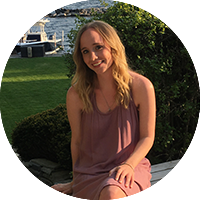 Graduated From The Honours Life Sciences (B.Sc. Hon) Program (2018)
Graduated From The Honours Life Sciences (B.Sc. Hon) Program (2018)
Current Position:
I am now starting my Masters of Anatomical Sciences in the Department of Biomedical and Molecular Sciences at Queen’s University.
What Was The Most Impactful Experience During Your Program?
The most impactful experience in my program was definitely my undergraduate thesis project. My supervisor was an excellent mentor who guided me through my very own research project from start to finish, and remains a valued mentor who I continue to collaborate with in additional projects as a post-graduate. The life sciences research course also provided me with valuable skills in research presentation and knowledge translation.
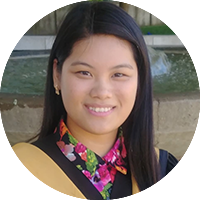 Graduated From The Honours Life Sciences (B.Sc. Hon) Program (2018)
Graduated From The Honours Life Sciences (B.Sc. Hon) Program (2018)
Current Position:
Master’s Candidate in the Pathology and Laboratory Medicine Program at Western University.
How Did The Life Sciences Program Help To Prepare You For Your Post-Graduate Endeavours?
The Life Science program helped me to develop a more holistic view of science and research. From being able to perform technical laboratory techniques, to effectively communicating scientific findings, I feel that I have refined many of the foundational research skills I need to do well in a Masters program. Also, I learned the importance of “soft skills” and gained strong interpersonal skills such as verbal and written communication, presentation, teamwork etc. Whether I decide to pursue more education, find a job in the workplace or travel the world, these skills will help me thrive in any position.
Honours Life Sciences Program In 2012 And The MiNDS Neuroscience Graduate Program In 2017 With A PhD In Neuroscience
Current Position:
. I’m currently a PhD Student in the Psychology Graduate Program (Research Clinical Training Stream) at McMaster University (you guessed it, I really love McMaster!). My graduate work focuses on the neuroeconomics of addiction. In addition to this, I’m an Assistant Clinical Professor (Adjunct) in the Department of Psychiatry and Behavioural Neuroscience and involved in teaching with the Psychiatry Postgraduate Residency Program.
How Did The Life Sciences Program Help To Prepare You For Your Post-Graduate Endeavours?
The Life Science Program prepared me for my post-graduate endeavours in numerous ways. First, the coursework provided me with a strong foundation in biological sciences and research methodologies; this really laid the groundwork for my understanding of neuroscience and research processes in graduate school. Second, the flexibility the program provides allowed me to take research-based courses and discover my research interests. This ultimately led me to find the Women’s Health Concern’s Clinic and PhD supervisors. Finally, The Life Sciences Program provides a nice balance between theory and problem-based learning, which is essentially the way things work in graduate school. Although it’s important to know how to think outside the box and problem solve, it’s equally important to know how to digest scientific theories and apply them to your work.
 Graduated From The Life Sciences Program (2018)
Graduated From The Life Sciences Program (2018)
Current Position:
I have graduated from the Life Sciences program in 2018, and I am going to be attending The University of Toronto under OISE for Developmental psychology and Education.
How Did The Life Sciences Program Help To Prepare You For Your Post-Graduate Endeavours?
It seems to be a reoccurring theme for me, but research! Acceptance into a post graduate master’s program is tough no matter what you apply for, but I truly believe the work I did outside of the classroom is what helped make me stand out. Further, it gave me the confidence to speak to professors and relevant experience to bring my education to the next level through real-life critical thinking skills.
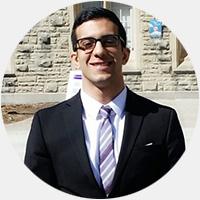 Honours Bachelor Of Science (Life Sciences), 2018
Honours Bachelor Of Science (Life Sciences), 2018
Current Position:
I am writing a research paper on feminism, preparing to present at a research conference in Québec, and getting ready to start my medical education in September.
What Was The Most Impactful Experience During Your Program?
When reflecting upon my undergraduate career, many transformative events stand out as having left a positive mark. However, my most valuable experiences are those that connected classroom learning with the broader needs of the McMaster and Hamilton communities. Fantastic community-outreach programs like the McMaster Children & Youth University, Hack the City, and MacEngaged showed me that the skills that I’ve acquired through my science education have the potential to make a lasting difference in the lives of those around me. For instance, during my fourth year, I took a MacEngaged course entitled The Biopsychology of Sex which required students to create an informative sexual health brochure. By working with classmates, partnering with community organizations, and reflecting on “the bigger picture,” I was able to develop an awareness of issues surrounding women’s health. This, in turn, inspired me to consider specializing in women’s reproductive health!
 Honours Life Sciences (Hons.B.Sc.)- Minor In Psychology (Class Of 2016)
Honours Life Sciences (Hons.B.Sc.)- Minor In Psychology (Class Of 2016)
Current Position:
Doctor of Naturopathic Medicine -2016- present (Class of 2020) at the Canadian College of Naturopathic Medicine
How Did You Utilize The Flexibility Available In The Honours Life Sciences Program?
The flexibility of McMaster’s Honours Life Sciences program was extremely valuable to me as I was able to satisfy my intellectual curiosity through acquiring a deep understanding in a wide variety of disciplines such as: physiology, neurobiology, developmental biology, anatomy, molecular biology, genomics, ecology & environmental science, psychology, health & disease, immunology, biochemistry, as well as inquiry-style courses which explored our healthcare system from sociological, economic and political perspectives. As a consequence, I not only became a well-rounded student through acquiring a versatile knowledge base, but I also developed an immense appreciation for the value in utilizing this transferable information through implementing a multidisciplinary perspective when solving complex ‘real world’ problems.
 Honours Life Sciences
Honours Life Sciences
Current Position:
Pursuing Master’s in Ehealth Program
What Was The Most Impactful Experience During Your Program?
The most impactful experience throughout my time in the Life Sciences Program was realizing that there is a strong sense of community, despite the large size of the program. Having support was never an issue as both my peers and professors were both helpful and resourceful when I reached out to them. My group members were quick to offer to complete more than their fair share when they noticed that I had a busy week. Despite their busy schedule, professors were also more than happy to offer their time to students, whether it is academic related or seeking advice. Being a part of such a close-knit community has encouraged me to engage with my community post-graduation in order to impact them at a local level and beyond.
 HBSc., 2017
HBSc., 2017
Current Position:
MD Candidate
Why Did You Chose Honours LS , Co-Op Or Specialization?
The Honours Life Sciences Program offered an unparalleled multidisciplinary approach to learning that was fundamental in instilling strong critical-thinking skills. Additionally, the program encouraged students to pursue experiential learning opportunities which allowed me to apply theoretical concepts taught in lectures to create a positive impact in the local community.
 B.Sc. Life Sciences Degree, 2018
B.Sc. Life Sciences Degree, 2018
Current Position:
In September 2018, I will begin the four-year Doctor of Naturopathy Degree program at the Canadian College of Naturopathic Medicine with the goal of pursuing a career as a naturopathic doctor.
What Was The Most Impactful Experience During Your Program?
During my program, I was fortunate to have worked as a teaching assistant. Through this experience, I was given the opportunity to work with other students and support them through their undergraduate careers. This was very impactful as I was able to share my experience and knowledge with them and watch them grow academically. It was rewarding to know that I was making a positive contribution to the McMaster Life Sciences community as I am thankful for everything that I was able to gain from this program. This opportunity also allowed me to make meaningful connections with a variety of people, each with their own goals and interests, and to appreciate the diversity of the Life Sciences student population.

